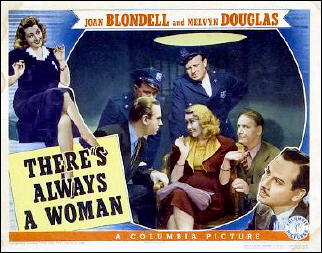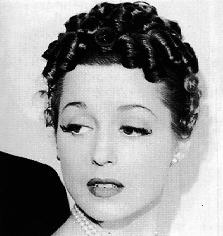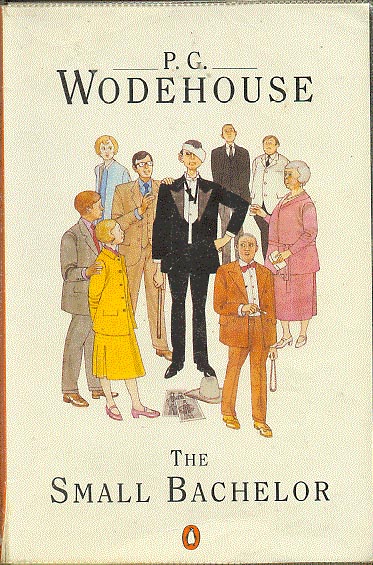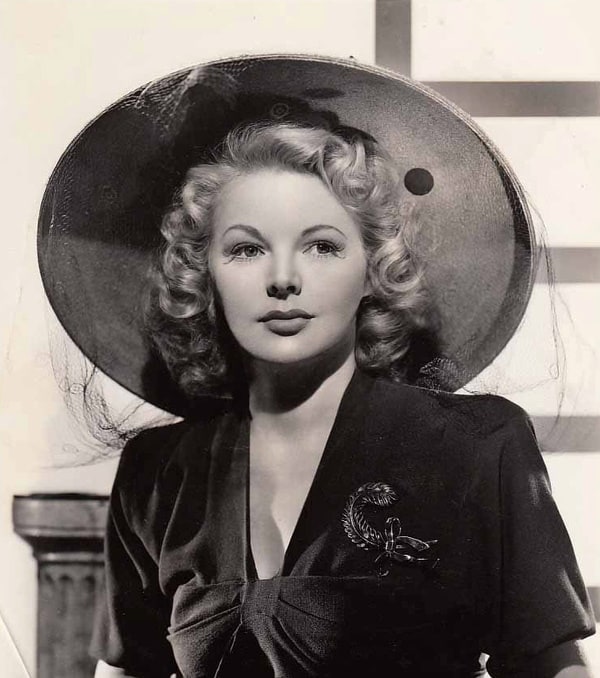There was an entry in George Sanders' previous detective series called "The Saint Takes Over," so we can assume that not much imagination was needed to come up with this title.
A large, menacing man (Ward Bond) waits outside Club 13. (His suit is padded to a ridiculous degree.) The Falcon's sidekick, Allen Jenkins, is parked outside waiting for Sanders. Bond asks him if he knows a girl named Velma. Bond goes into the club, throwing aside the doorman. He disappears into the boss's office, then shots are heard and he rushes out and forces Jenkins to drive him away. Sanders arrives just as the inimitable Inspector James Gleason shows up to investigate, along with his assistants Edward Gargan. The man died of a broken neck, not a gunshot.
Jenkins takes Sanders to the spot where Bond got out of the car at the home of Ann Revere. Bond is waiting outside the house, but Sanders pretends to be drunk to avoid conflict. Bond steals the car and drives off. Sanders bluffs his way into the house posing as a detective. She shows him a picture of Velma. Back at home Sanders gets a phone call from Hans Conried, who asks him to act as a bodyguard for the evening. Thieves are using Conried to sell a necklace back to the woman they stole it from. Conried takes Sander to a foggy cemetery and then shoots him; and then he immediately is shot. A girl (Lynn Bari) coems out from behind the shrubbery and is startled by Sanders, who was feigning death. She is an unemployed reporter hoping to get a big story about the Bond case. From Conried's wallet Sanders pulls a card of a psychic named Jules Amthor (who just happens to be the name of the psychic in the famous film noir
Murder My Sweet, which had a character much like the one Bond played.) Turhan Bey plays the part.
The next morning Bari tells Sanders of a jade necklace which is involved with Diana Kenyon. They go to her apartment. Bari leaves on cue, and Sanders quizzes Kenyon about the gang that pulled the necklace holdup, kisses her and leaves. Bari sees the lipstick and is jealous. Gleason and Gargan follow Jenkins to Amthor's house. While he is in the house, Bond comes in and roughs up Jenkins. The lights go out and shots are fired. The cops break in and Jenkins is lying on the floor and the others are dead. The cops grill him, but finally have to let him go. Sanders and Jenkins go back to Revere's house, where Sanders finds notes that are good clues. He meets Kenyon at the Swan Club, and they go to meet the owner, Selmer Jackson. Sanders asks him if he knows the whereabouts of Bond. Bond is watching through the window. Kenyon says that she remembers Velma from a roadhouse in the area. In the car, Kenyon pulls a gun on Sanders. He guesses that she is Velma. As they talk, we see that Bond is her chauffeur. They drive to a remote rural area. She tells the chauffeur to take Sanders "for a walk." When they leave, Bond talks to Kenyon, accuses her of doublecrossing him, and she shoots him. Bari drives up, distracting Kenyon's attention, and Sanders disarms her.
This story resembles
Murder, My Sweet closely enough that one suspects it is also based loosely upon the novel
Farewell, My Lovely.

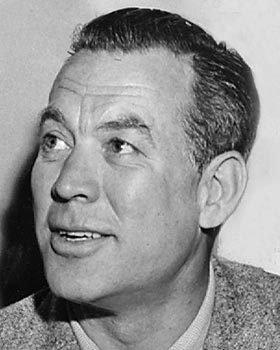
Bond

Revere
















%205.6.jpg)





